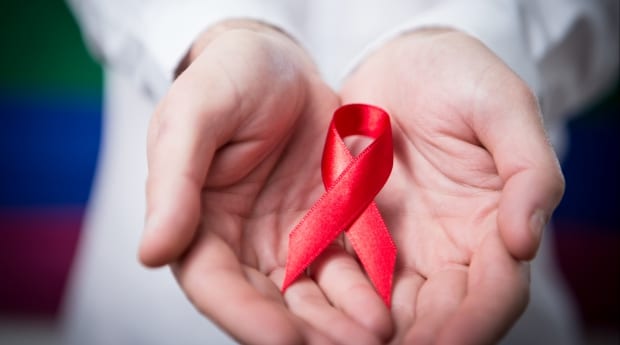<The Canadian AIDS Society crisis (Part 1)
On Oct 30, 2015, the board of the Canadian AIDS Society held an emergency meeting.
However, not all of the board members were able to attend.
Fanta Ongoiba, the executive director of Africans in Partnership Against AIDS, was one of two Ontario directors on CAS’s board.
She says that she already had an engagement with the Centre for Addiction and Mental Health that couldn’t be rescheduled.
Ongoiba didn’t know exactly why the meeting was called or what would be discussed. But ever since the three CAS staff members had sent an open letter denouncing the leadership of the organization, the board had been working overtime.
“When the three staff sent out the information, we started strategizing,” she tells Daily Xtra. “We were communicating, having meetings. Sometimes it was emailing forth and back, but at least people were involved and people were speaking out and then giving their opinion.”
Ongoiba says that after the meeting, she expected to be sent an email or some sort of debriefing about any decisions that had been made.
She didn’t receive any communications until Nov 2, when she got an email that was sent out to all CAS members.
The email stated that CAS CEO and executive director Monique Doolittle-Ramos had resigned in order to take a position at another organization.
“At heart, her decision is based on the future of the Canadian AIDS Society and those we serve,” read the letter.
Ongoiba says that she was shocked.
“When the CEO resigns, at least the entire board should know about it,” Ongoiba says. “We shouldn’t be informed at the same time as the entire membership of CAS.”
The letter acknowledged some of the troubles the organization had been experiencing lately.
“The Canadian AIDS Society has been working to resolve a serious matter for the past few weeks, triggered by actions of three members of our staff,” it read. “We have been working closely with the Executive and the Board with a full operational review to address the issues.”
But what surprised Ongoiba even more than the resignation of the CEO was who was chosen as her replacement.
”Considerable thought was given to a replacement,” the letter stated. “As a result the Board has decided to name our current Chair, Gary Lacasse, as Executive Director of the Canadian AIDS Society.”
Ongoiba says she was confused because the letter was written in a way that indicated Lacasse was now the permanent executive director.
“I sent an email and I asked different questions like: Is it permanent? Or is it interim? Or acting?” she says. ”I didn’t get a response.”
“I have been left out of that discussion, I don’t know what is going on here,” says Ongoiba. “I don’t want my name associated with such a decision because I wasn’t part of it.”
Ongoiba then sent the board a resignation letter.
“I’m on the board and I’m representing Ontario,” she says. “I don’t have information so how can I give at least decent information to our members.”
On Nov 3, David Stempowski, acting chair of the CAS board, sent out another letter justifying their decision to hire Lacasse.
“Given the recent set of difficult circumstances, with the resultant impact on the morale of staff and confidence of our stakeholders, it was the view of the Board that time was of the essence,” wrote Stempowski. “A lengthy delay in filling this senior position at this critical time of great uncertainty in our operating environment would be damaging to say the least.”
He also wrote that the decision was made so that “our ability to deliver our programs would not be interrupted, delayed nor put CAS in a precarious financial situation.”
The letter went on to say that while CAS could have hired a recruitment firm to find a replacement, they decided not to do that because of “the lack of available resources, and the several months process involved in such a search.”
Ongoiba says that she still doesn’t know if the board had quorum to make such a decision or if Lacasse was party to the discussions that led to his own hiring.
“If people ask me questions, I will not be able to say anything because I wasn’t informed and I was not aware of it,” she says. “I became aware at the same time as other people.”
Ongoiba, whose organization is still a member of CAS, believes that the board should take the concerns raised by staff seriously because of the many years of experience they have within the orgnaization.
“They knew CAS better than me,” she says. “So if they point out something, the board should look at it seriously and not minimize it.”
Ongoiba says that CAS needs to fundamentally change the relationship it has with its members.
“If they don’t listen to their members, I don’t see why [AIDS service organizations] should be members of CAS,” she says. “CAS cannot be CAS without its members.”
The elevation of former board chair Gary Lacasse to executive director of CAS marked a turning point for a number of CAS members who would resign from the organization over the following few days.
The Canadian AIDS Society crisis (Part 3)>

 Why you can trust Xtra
Why you can trust Xtra


